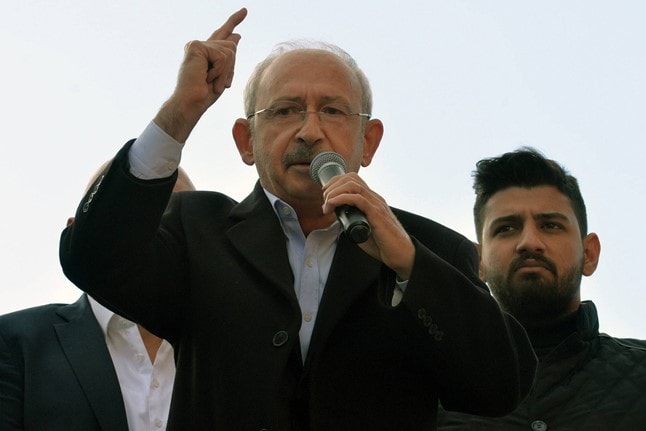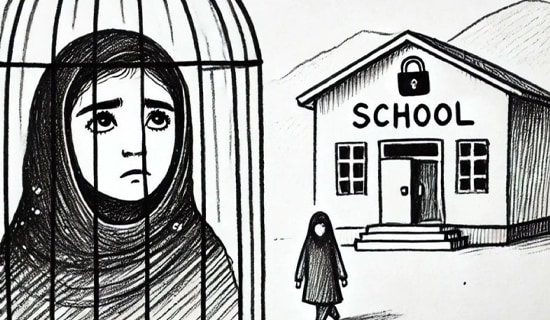On May 14, 2023, Turkish voters will go to the polls to elect a president, and, at least according to the opinion polling, the leader of the opposition coalition Kemal Kılıçdaroğlu is threatening to unseat Recep Tayyip Erdogan. Erdogan has ruled Turkey for two decades and Vladimir Putin has invested a great deal into a relationship with him. Therefore, it should come as no surprise that Erdogan has Russia's support.
Kemal Kılıçdaroğlu accused Russia of spreading conspiracies and deep fakes in the run-up to the elections. He took to Twitter on May 11, 2023, to chastise Russia for its alleged interference:
"Dear Russian friends. You are behind the montages, conspiracies, deep fakes and tapes that were exposed in this country yesterday," Kılıçdaroğlu said, without offering further details. "If you want our friendship after May 15, get your hands off the Turkish state. We are still in favor of cooperation and friendship."[1]
Another move aimed at boosting Erdogan's chances was the decision by the Russian oil and gas giant Gazprom, which frequently functions as an instrument of Russian foreign policy, to defer an estimated $600 million payment for Russian gas for a year. This allows the Turkish leader to pump more money into the economy and raise the salaries of civil servants in an effort to counter his opponent's strongest criticism – the shaky state of the Turkish economy.[2]
Political science professor and prolific columnist Gevorg Mirzayan explained why Moscow, despite its occasionally rocky relations with Erdogan, still hoped for his reelection. Erdogan had performed essential services for Russia such as helping Moscow circumvent the sanctions and keeping NATO out of the Black Sea. These and other issues would be at risk if Erdogan were defeated. Mirzayan's expectation is that Erdogan wins the elections, either by honest means or by the use of "administrative methods."
Mirzayan's article follows below:[3]
"Less than two weeks remain before the parliamentary and first round of presidential elections in Turkey. On May 14th, Turkish voters will not only decide the fate of President Recep Erdogan and of the ruling Justice and Development Party but will also determine the country's place in the Russo-Western conflict. Therefore, it is unsurprising that the outcome of the election is very important not only for the Turkish people per se, but also for Moscow and Washington.

Turkish President Recep Tayyip Erdogan campaigns (Source: Pnp.ru)
"Over the recent years, Recep Tayyip Erdogan was an extremely difficult partner for Moscow. Erdogan's neo-Ottoman, imperialist ambitions prompted Ankara to consider Syria, the Caucasus, Central Asia, even Russian territories (Crimea, the Caucasus, the Volga region) as a Turkish sphere of influence, which, understandably, ran counter to Russian national security interests.
"In some places (e.g., in Syria), Moscow and Ankara have managed to reach compromise solutions, but [the fate of this] compromise has been constantly called into question by the adventuristic policy of the Turkish president, his perception of these territories [Syria] as a Turkish 'underbelly,' and constant attempts to revise existing agreements in his favor.
"Sometimes (as was in the case in November of 2015, when the Turks shot down a Russian plane and pro-Turkish militants shot and killed the Russian pilot Oleg Peshkov) this led to tragedies and a sharp deterioration in bilateral relations between the two states. Sometimes (as it was in the case in January 2022, during the Kazakh riots, which were staged by the pro-Turkish opposition (among other perpetrators), Russia was forced to use troops to stabilize the situation.
"With all these disadvantages, however, the incumbent Turkish president is a far more preferable figure for Russia than his opponent Kemal Kılıçdaroğlu, who heads the opposition coalition. He is sort of a lesser evil.
"True, Erdogan is an imperialist by nature, however this characteristic brings him into conflict not only with Russia but also with the West. Washington and Brussels categorically disapprove the Turkish leader's attempts to force them out of the Caucasus and the Middle East.
"They also do not like Erdogan's policy of Islamization and sovereignization of Turkey; and yet they (unlike Russia, which is emphatically respectful of the domestic politics of its partner countries) constantly criticize the Turkish president, interfering in Turkish affairs and sometimes even blackmailing Ankara, threatening, for instance, to halt military and technical cooperation unless Erdogan renounces relations with Moscow or ends the conflict with the pro-Western part of the Turkish opposition.
"The president answers them in the same way, for example, by threatening not to allow Sweden to join NATO unless the West stops supporting Kurdish human rights organizations based in Europe.
"Thus, the conflict between the West and Erdogan not only provides Moscow with tools to assert pressure on the Turkish leader, but also [offers] opportunities for some joint action serving Russian interests. For example, in organizing 'grey imports' of Western goods and technologies through Turkey, or in preventing the American fleet from entering the Black Sea.
"[Kılıçdaroğlu Is] Not A Partner"
"Russia will have no such opportunities, in the event that Kemal Kılıçdaroğlu wins. The only opposition candidate is completely pro-Western. He intends to restore Turkey to the position it occupied before Erdogan came to power – that is, to the status of a retransmitter of Western interests and an obedient American ally in the region. Accordingly, under his presidency, Turkey will cease active economic relations with Moscow and will be fully involved in 'Western schemes' in the Ukrainian direction. It will increase the supply of Turkish armaments to the Kyiv regime, open the [Bosporus] straits to the American ships, close grey imports of goods to Russia, and, naturally, try to open second and third fronts against Russia, for example, in Central Asia and the Caucasus (where the Armenian-Azerbaijani conflict is teetering on the brink of renewed hostilities).

Kemal Kılıçdaroğlu (Source: Mk.ru)
"That is precisely why Moscow hopes for Erdogan's victory – and this hope is not baseless. [This hope is predicated] on [considerations], both sociological (opinion polls demonstrate an approximately equal number of votes for the candidates) and administrative. Recep Tayyip Erdogan controls the Turkish press, the courts and, partially, the law enforcement system. And provided doctors manage to improve his health, the Turkish leader may well use administrative resources to win the elections (either at the polls or during the vote count).
"Everyone in the West understands this and realizes that Kemal Kılıçdaroğlu's victory could present one of the few chances to alter a poor situation on the Ukrainian front for the U.S. and the EU. The only question is how exactly to ensure this victory.
"The West could, of course, intervene more actively on the side of the Turkish opposition, i.e., to help the latter with money, media influence, or even engage in direct blackmail of the Turkish authorities. However, this would be a very risky gamble. First, because Erdogan is bound to use this open intervention in order to mobilize his supporters and undecided citizens, who are opposed to any form of external control over their country. After all, Turkish society has extremely anti-American leanings.
"Second, provided Erdogan does win, this intervention may further worsen his attitude towards Western states. Therefore, as the European Council on Foreign Relations correctly writes, 'the actions and statements that U.S. and European policymakers make in the run-up to, and immediate aftermath of, the election may well define their relationship with Turkey for the next decade.'[4]
"Here, too, the key phrase is 'immediate aftermath.' While unequivocally warning Western leaders against interfering in the pre-election process, the experts recommend that they intervene afterwards. For instance, to promptly recognize the results of the first-round if, according to preliminary estimates, Kemal Kılıçdaroğlu receives more than 50% of the votes, so that it would be much more difficult for the [Turkish] authorities to change the preliminary result during the final vote count (the results are to be announced only on May 19).
"There are other ways to intervene [into the elections] that the experts do not explicitly write about. For example, to influence a stance of the Turkish elites between the first and second round (especially in case Erdogan's health deteriorates); or give media and political support for the opposition's claims of electoral fraud.
"The irony is that such an intervention could also play to Russia's advantage, provided Erdogan survives the election (and he is, after all, a classic survivalist politician), he will not forget or forgive the West. This means he will be more inclined to enter in some sort of joint action with Moscow."




